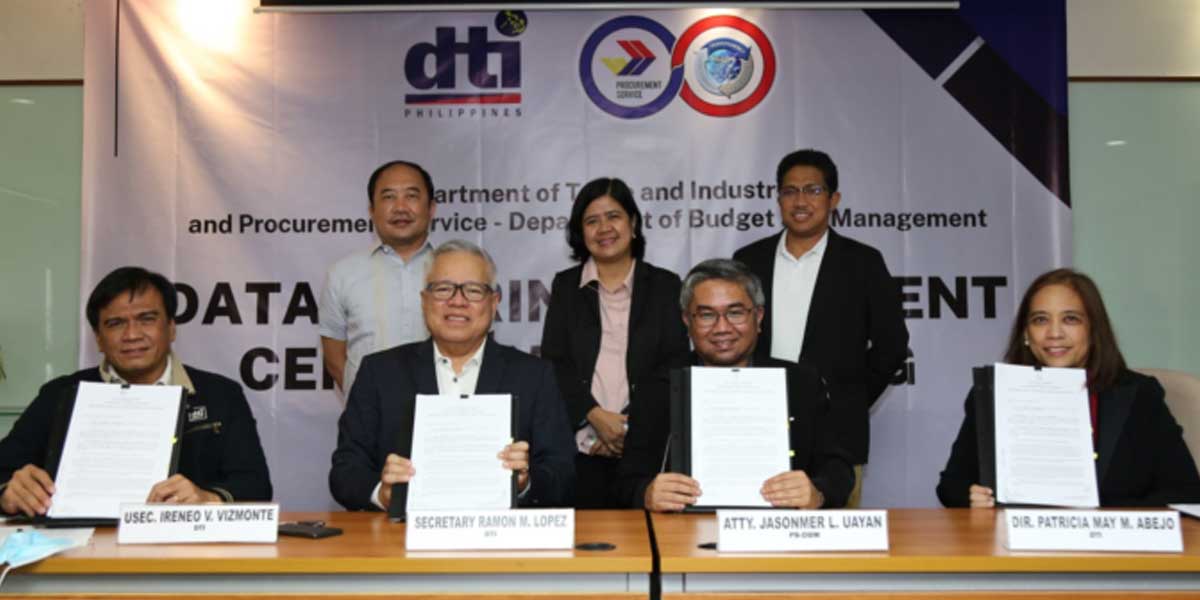
On 22 June 2022, the Department of Trade and Industry (DTI) and the Procurement Service-Department of Budget and Management (PS-DBM) signed a Data Sharing Agreement (DSA) which allows the two agencies to link their respective systems and further improve the electronic procurement process. The ceremonial signing was held at the Philippine Board of Investments in Makati City and was attended by representatives from both the PS-DBM and DTI.
Signed by former Trade Secretary Ramon M. Lopez and PS-DBM OIC Executive Director Jasonmer L. Uayan, the agreement is expected to help promote the integrity of and expedite the public bidding process through data sharing.
“This initiative will help fast track the public procurement process and most importantly, it will make the system more efficient as it cuts down red tape and promotes transparency, competitiveness, and good governance,” Secretary Lopez said.
As per the agreement, DTI and PS-DBM consent to share with each other personal and business information of the registrants from their respective system databases, primarily for the purpose of linking DTI’s Business Name Registration System (BNRS) with the Philippine Government Electronic Procurement System (PhilGEPS).
Further, the agreement assures that both parties will treat the shared information with “utmost confidentiality” and will be used as third-party information for review, verification, and validation purposes only.
“Increased transparency and efficiency through data sharing will also enhance people’s confidence towards public institutions since pertinent information related to public procurement will be readily available in just one click, enabling them to easily validate whether a bidder or a supplier is legitimate and properly documented,” Secretary Lopez added.
To ensure the protection of personal information, the agencies will also implement necessary security measures as specified in the Data Privacy Act of 2012. According to DTI, providing agencies access to the BNRS NextGen will “expedite the validation process, curb red tape and corruption, and help improve the overall transparency of the bidding process.”
















